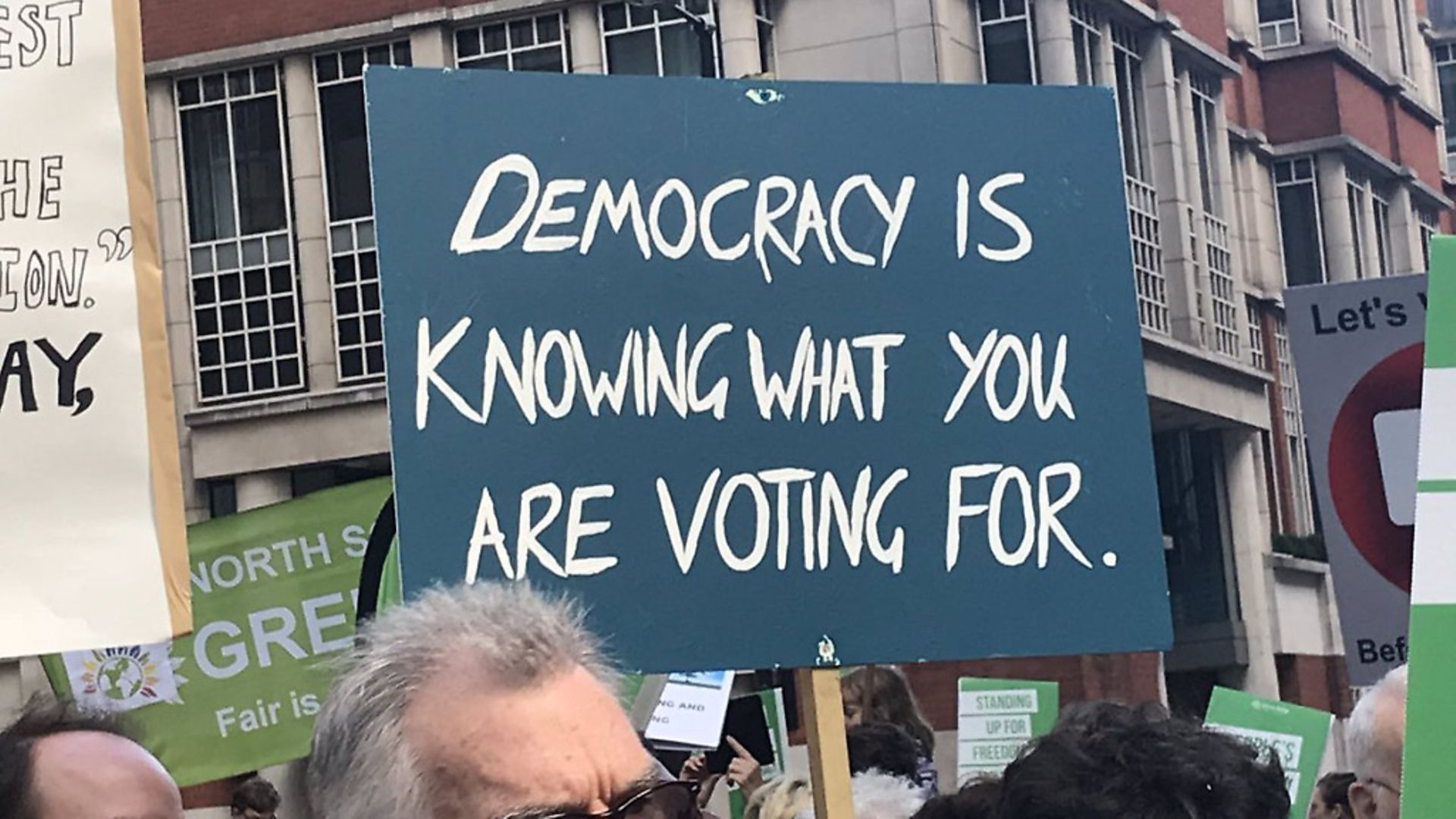
There has been so much information and misinformation about Brexit that it is difficult to separate fact from fiction.
Campaigners from the Ethnic Minorities for a People’s Vote group have put together a list of the most common questions and statements that we have received in order to provide some clarification on Brexit, supported by research and evidence.
Myth: Leaving the EU will make immigration easier for non-EU nationals
Fact: There is no evidence that Brexit will make immigration easier for non-EU nationals. With the current hostile environment that the government has fostered, there is little hope that post-Brexit immigration policies will make it easier for any migrant community to enter, live or work in the UK.
In fact, in January 2019, UK visas lasting longer than six months became double the price for non-EU migrants as part of an effort to clamp down on all immigration by the Home Office. At best, Brexit will make immigration equally difficult for both EU and non-EU migrants. At worst, Brexit will also embolden anti-immigrant sentiments and rhetoric.
Myth: The EU does nothing for ethnic minority communities
Fact: Although the EU has multiple pieces of anti-discrimination legislation – such as the Race Equality Directive – set in place to combat racism, discrimination and xenophobia, there is much work to be done when it comes to achieving race equality. In addition to this, there have been EU mandates and directives aiming to tackle the refugee crisis, which predominantly impacts ethnic minorities. These directives fund NGOs and rescue services to help refugees abandoned at sea.
Myth: Ethnic minorities won’t be affected regardless of the outcome of Brexit
Fact: Research by ROTA shows that ethnic minorities will be disproportionately affected by Brexit compared to their white counterparts. Studies show that Brexit will most likely lead to an economic downturn in the UK’s economy, with public services likely amongst the first collateral damage. As ethinc minorities are more likely to be both users and providers of public services, they stand to lose out most. Ethnic Minorities for a People’s Vote have written articles on how ethnic minorities are and will be affected by Brexit.
Myth: A People’s Vote would make discrimination against ethnic minorities worse, not better
Fact: Since the Brexit vote, reported discrimination against ethnic minorities has risen. 71% of people from ethnic minorities now report having faced racial discrimination, compared with 58% in January 2016. It cannot be 100% guaranteed that a People’s Vote would stop people from holding discriminatory views, but a democratic vote would allow for those against discrimination and hate crimes to make their voices heard. If we continue down the current toxic path where the views of the far right are emboldened, we risk discrimination worsening.
Myth: Turkey will join the EU and its 76m residents will come to the UK (according to the Leave campaign)
Fact: Turkey is not joining the EU. Turkey originally applied to become a member of the European Economic Community – the EU’s predecessor – in 1987 and has still not become a member. The EU Council also said last year that Turkey’s accession to the European Union has come to a standstill whilst the European Commission released a press release which said that “Turkey has continued to move further away from the European Union.”
Myth: The EU is an imperial force.
Fact: The EU is made up of 28 member states who all have decision making powers and are democratically represented in the EU parliament. The EU has four main aims around freedom, citizenship, economic and social progress and influence in the world. This contrasts imperialism which is defined as state policy of extending power and dominion, especially by direct territorial acquisition or by gaining political and economic control of other areas, usually through the means of military power. Unlike the case with imperialism, the EUs law making powers comes from its member countries.’
Myth: EU citizens have nothing to worry about.
Fact: Proponents of Brexit had often claimed that the rights that EU citizens in the UK enjoy would not change. This has proven to be inaccurate, as the Government has since required all EU citizens in the UK to apply for Settled Status. If not granted, EU citizens may lose their right to reside in the UK, despite having entered the country legally.
Myth: The UK has the upper hand when negotiating our EU departure terms
Fact: There are 27 other countries in the EU. They all have a say and must unanimously agree with the terms of our withdrawal. Naturally, they will act in the best interests of the EU as opposed to that of the UK, as siding with over 20 countries has much more influence than siding with just one country. Whilst the UK has historically had a relatively good economy and standing in the world, this is because in modern history, the UK has always relied on its relationship with, and support from, other countries. Previously, this was through colonialism – in recent years, it has been through European integration. Almost 65 trade deals are currently at risk if the UK leaves the EU.
There are many myths surrounding Brexit, and hopefully this has helped to dispel some of them.
One fact we know to be true is that ethnic minorities have been underrepresented during the Brexit debate and that they are going to be disproportionately worse off after Brexit. That’s why we’re campaigning for a People’s Vote. And if you agree, then support us by signing our petition.
– Bella Frimpong is a supporter of Ethnic Minorities for a People’s Vote and For Our Future’s Sake
Warning: Illegal string offset 'link_id' in /mnt/storage/stage/www/wp-includes/bookmark.php on line 357
Notice: Trying to get property 'link_id' of non-object in /mnt/storage/stage/www/wp-includes/bookmark.php on line 37






